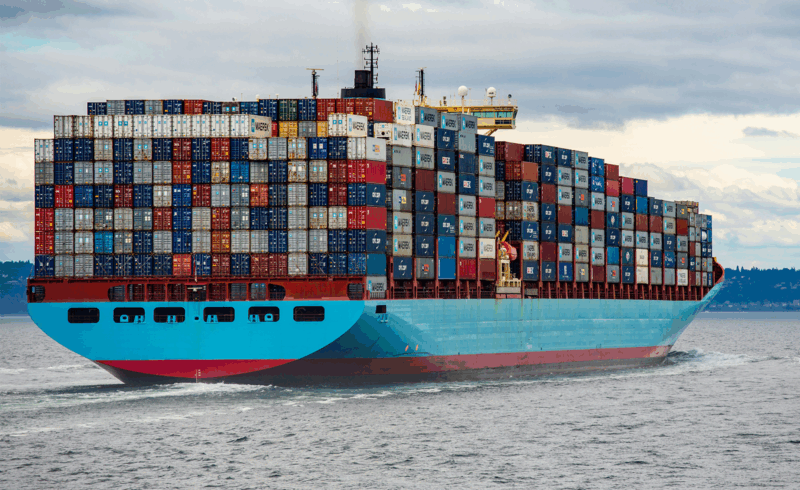In the aftermath of COVID-19 and amidst growing geopolitical and technological disruption, the risk landscape for global supply chains has shifted fundamentally.
What was once a relatively stable and predictable environment has evolved into one defined by volatility, fragmentation and constant adaptation.
Recent conversations across my network, reinforced by insights from a recent webinar featuring leaders from MARS and ECCO Americas – confirm that organisations are not only rethinking their approach to risk management but are also fundamentally reconsidering the capabilities and mindsets they need in their supply chain teams.
In this article I share observations on the changing face of supply chains, and the implications on talent and hiring strategies.
Resilience: The New Benchmark for Supply Chain Leaders
Before 2020, the gold standard for supply chains was lean efficiency, however, COVID-19 exposed how fragile many of those tightly optimised networks had become. What worked in a stable environment buckled under crisis.
Today, resilience is the new KPI, and this has significant implications for leadership profiles. Modern supply chain leaders must now operate with:
- Scenario-based thinking
- Faster decision cycles
- A broader view of risk
Where once technical experience and operational efficiency were enough, boards and executive teams now seek leaders who can drive digital transformation, shape organisational culture and build collaborative ecosystems across internal and external stakeholders.
This means leadership hiring is no longer just about filling operational gaps but extends to securing strategic capability.
Digital Fluency is no Longer Optional
A major shift we’ve witness is the rise of AI and predictive analytics in areas like demand sensing, forecasting and modelling. In recent years a number of large consumer organisations are actively investing in AI solutions.
- IKEA has developed an advanced tool that significantly improves the accuracy of its demand forecasting, using AI and existing and new data to offer highly accurate forecast insights.
- L’Oréal is using AI to power their Beauty Tech program, ‘Demand Sensing’. Developed in their Tech Accelerator, it re-invents demand forecasting process in a digital world, leveraging data, consumer insights and machine learning.
- Amazon mines the text of online product reviews to gather insights that enhance its demand predictions.
- H&M leverages data from its loyalty programs to gain a bettering understanding of consumer buying patterns and anticipate future demand.
Carlos Madruga, Global Supply Chain Capability Director at MARS, shared how algorithmic forecasting has significantly outperformed traditional models.
For this shift to succeed, supply chain teams and those in decision-making roles must embrace a more data-driven culture, which requires more than technical upskilling. It demands a mindset shift, especially at senior levels, where scepticism toward new tools can stall transformation.
Leaders must now actively foster digital trust, co-creating tools with their teams, investing in data transparency and celebrating wins when AI improves outcomes. As one panellist on the webinar noted, running new systems in “shadow mode” and involving teams in the process helps build trust. But the tone and openness must come from the top.
Harmen Denekamp, Director, Demand Planning and Inventory, said:
"Building trust between your leadership, your team and technology is critical."
In talent terms, this means leadership candidates with a background in digital transformation, data governance or cross-functional innovation are now in increasing demand – even in roles that historically focused solely on operations.
Cultural Agility and Continuous Learning
Organisational resilience cannot be delivered by process and technology alone. As Madruga stated, “Culture eats strategy for breakfast.” Psychological safety, adaptability and continuous learning are now foundational to risk-ready supply chains.
A number of leading organisations are establishing Centres of Excellence (CoEs) to scan the horizon for emerging capabilities and align internal skill development with longer-term business goals. This connects talent strategy directly to risk strategy.
At the hiring level, this is shifting how businesses assess potential. Agility, curiosity and cross-functional collaboration are emerging as non-negotiables – often weighted equally to technical experience. The best candidates are those who view transformation as ongoing, thrive on ambiguity and are comfortable navigating both operational and strategic domains.
New Role Expectations, Evolving Structures
As supply chain ecosystems become more complex and interdependent, organisational structures are also evolving. There is growing demand for roles that bridge traditional silos such as supply chain-technology hybrid roles, risk-focused data analysts and supplier relationship strategists.
At the executive level, there is a visible shift in expectations for Chief Supply Chain Officers and Heads of Planning. They are now expected to work hand-in-hand with CIOs and CHROs, lead digital transformation agendas and cultivate cultures of learning and agility. The ideal leader today is a connector; someone who can unite people, data and systems into a cohesive, adaptive strategy.
The Broader Talent Landscape
While the technology has changed, the people challenges remain human. Skills like critical thinking, effective communication and resilience under pressure are now more important than ever.
Hiring teams need to identify these traits earlier, structure onboarding around fast learning and support ongoing development beyond just compliance training. Many organisations are reassessing their entire employee value proposition – not only to attract high-calibre talent but to retain it in a fast-moving, high-demand market.
Moreover, supplier risk now extends into the talent domain. Risk mitigation is no longer limited to internal planning. Organisations must now co-develop capability with suppliers and ensure external partners share a baseline of digital literacy, risk awareness and collaborative practices.
What Next for Talent Strategy?
Supply chain risk will only grow in breadth and intensity, but the good news is that the talent conversation is moving in the right direction. From skills development and cross-sector hiring to cultural transformation and digital literacy, leading organisations are starting to invest where it matters most: in people.
To future-proof supply chains, companies must evolve their talent strategies to:
- Integrate technology into leadership development
- Build cultures that reward agility and learning
- Foster collaboration across business units and with external partners
- Build trust in data a strategic leadership priority
As one panellist said, “Being lean without being agile is the wrong approach.” In the same way, hiring purely for efficiency is no longer enough. For organisations navigating the next wave of supply chain transformation, talent will be the defining factor.
For a conversation about your organisation’s talent strategy, please don’t hesitate to get in touch.
Chris Corcoran

Senior Partner | Consumer Markets | EMEA
E: chris.corcoran@weareprocogroup.com T: +44 203 962 4644




